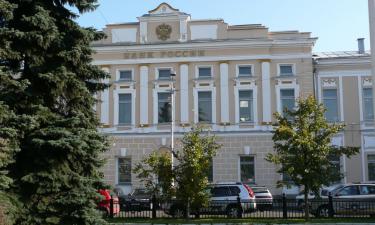Zimbabwe gold production plunges to its lowest in 90 years
Gold production in Zimbabwe plunged to its lowest in 90 years.

Zimbabwe was also the only mineral-producing country in the world that failed to benefit from high global metal and minerals prices, said Jack Murehwa, head of the chamber, an umbrella group for the country's private and state mining operations.
"Our industry continues to experience declines in volumes ... despite the very buoyant mineral prices which prevailed for the past 18 months," he said in report available Tuesday.
In the year up to March, Zimbabwe produced eight 8 metric tons (just under nine short tons)of gold. In 1916, at the height of the colonial-era gold boom in southern Africa, the former British colony mined 29 metric tons (about 32 short tons) of gold.
Murehwa said the world price for gold rose from about US$275 an ounce in 2001 to more than US$600 last year. Nickel, platinum and copper prices also soared.
"What excuse can our industry give for not benefiting from this worldwide boom in metal prices?" he said.
The answer, he said, lay in what he called "policy inconsistencies" in the economy that led to hyperinflation, acute shortages of gasoline and hard currency for equipment and spare parts, regular power outages and an exodus of skilled mining personnel to better paid jobs in other countries.
He said despite the high world prices, investors in mining stayed away from Zimbabwe.
Zimbabwe is suffering its worst economic crisis since independence in 1980, blamed largely on corruption, mismanagement and disruptions in the agriculture-based economy after President Robert Mugabe ordered the often-violent seizures of thousands of white-owned commercial farms in 2000 for handing over to black farmers.
Since then, mechanized farming in some areas has been replaced by age-old animal drawn plowing.
Inflation is a record 3,714 percent, the highest in the world. Last month, consumer prices for most goods doubled in a country already facing shortages of food, gasoline, medicines and other imports.
According the central bank, overall foreign investment declined from US$444.3 million in 1998 to just US$50 million last year. It cited "perceived risk" and worries over security of ownership as the main disincentives for investors.
Mugabe has regularly vowed the government will take a bigger stake in mining in its efforts to turn over more economic production to "indigenous" Zimbabwean interests.
Subscribe to Pravda.Ru Telegram channel, Facebook, RSS!





